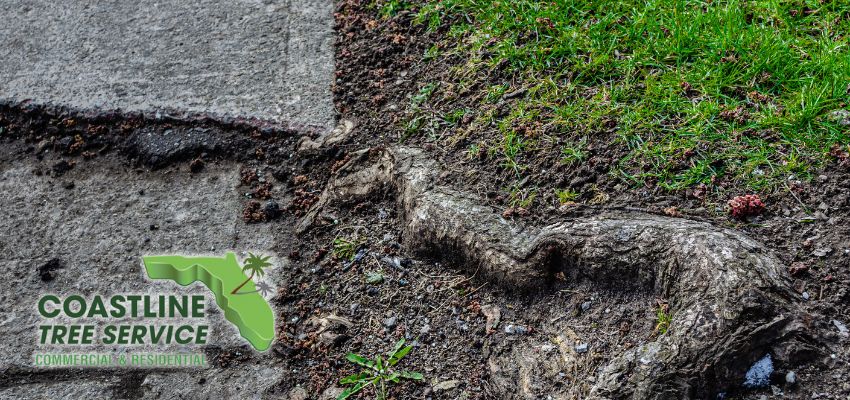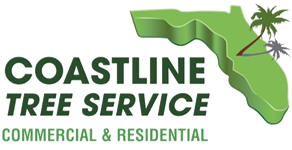
The Hidden Financial Costs of Neglecting Root Pruning in SW Florida HOA Communities
In the verdant landscapes of Southwest Florida, tree management is a crucial aspect of maintaining a healthy and aesthetically pleasing environment, especially within Homeowners Association (HOA) communities. Among the essential tree maintenance practices, root pruning stands out as a preventive measure with significant implications for community finances and safety. Coastline Tree Service aims to emphasize the importance of regular root pruning, not only to safeguard property but to protect HOA communities from unforeseeable financial burdens.
Root systems can become problematic when they grow unchecked; they may lift sidewalks, interfere with utilities, or even compromise the structural integrity of nearby buildings. In this article, we’ll outline the top 10 financial costs that can afflict an HOA community in Southwest Florida when root pruning is not regularly maintained.
Top 10 Financial Costs of Neglected Root Pruning
1. Infrastructure Damages
Untamed roots can grow into and beneath infrastructure, such as roads, sidewalks, and communal facilities, causing uneven surfaces and cracks. The cost of repairing or replacing damaged infrastructure can be substantial, often running into tens of thousands of dollars for an HOA community.
2. Repairing Utility Lines
Roots can entangle and break utility lines hidden underground, such as water, sewer, or electrical conduits. The disruption can lead to costly repair bills and service charges, not to mention the inconvenience to residents and potential liability issues for the HOA.
3. Plumbing Intrusions
Similar to utility lines, roots may invade and block plumbing systems leading to or from homes within the community. Repairing plumbing systems can lead to significant expenses, given the laborious task of accessing buried pipes and the related repair work such intrusions necessitate.
4. Landscape Damage
Healthy, well-maintained roots support the landscape’s aesthetics by ensuring trees and surrounding plants thrive. Without proper pruning, aggressive roots can overshadow or devour nutrients from other vegetation, leading to a drop in the overall appeal of the community and necessitating costly landscaping revitalization projects.
5. Legal Liabilities
Should a resident or visitor trip and fall due to an uplifted pavement caused by intrusive tree roots, the HOA could face legal action. Liability claims can result in legal fees and compensation payouts, posing a significant financial risk.
6. Decreased Property Values
The presence of overgrown roots can lead to a decline in property values. Prospective buyers or renters might find the compromised structural aspects of the community unappealing, affecting the overall marketability of homes within the HOA.
7. Loss of Tree Life
Neglecting root pruning doesn’t just threaten man-made structures; it can also lead to the decline of the trees themselves. Unchecked roots may grow at the expense of the tree’s health, potentially leading to costly tree removal and replacement procedures down the line.
8. Emergency Services
In the event that a tree or its branches fall due to an unstable root system, emergency services may be required for immediate removal or road clearance. These emergency call-outs tend to bear higher costs, further stretching the HOA’s finances.
9. Water Management Issues
Proper root systems play a vital role in water absorption and soil stability. Inadequately maintained root structures can disrupt the community’s drainage systems, leading to waterlogging and potential flooding, and subsequently requiring expensive water management solutions.
10. Insurances and Premiums
HOA communities must carry insurance to cover potential damages, including those caused by trees. A history of neglect and corresponding claims can lead to increased insurance premiums, thus adding an ongoing cost burden to the HOA’s financial obligations.
Root Pruning: An Investment in Prevention
While the act of root pruning may seem inconsequential in the short term, it is undeniably a strategic investment in the long-term financial stability and safety of HOA communities. Proactive root management, performed by our professionals here at Coastline Tree Service, can dramatically minimize the risks and costs associated with the scenarios outlined above.
Conclusion
For HOA communities in Southwest Florida, the lush and flourishing landscapes are a defining feature. To ensure these landscapes continue to enhance community life without causing financial drain or safety hazards, regular maintenance, including root pruning, is essential. By considering the potential costs of inaction, HOA boards and property managers can make informed decisions that align with their fiduciary responsibilities and communal expectations. Coastline Tree Service stands ready to partner with communities in safeguarding their beauty, functionality, and financial health through expert tree care services.
Does Your HOA Need Root Pruning Services?
Don’t wait for signs of trouble; take the initiative to protect your HOA community and its financial future. Contact our team here at Coastline Tree Service for a comprehensive assessment and root pruning services tailored to your community’s unique requirements. Our expert team is dedicated to preserving Southwest Florida’s natural charm while eliminating the hidden costs of negligence.
We have the equipment, man power, and on staff expertise (certified arborists & tree experts) to handle all of your tree service management needs in SW Florida including all tree trimming, tree removal, tree pruning, root pruning & tree stump removal services to name a few.
We proudly serve and offer tree trimming services in Naples, Marco Island, Bonita Springs, Estero, Fort Myers, Fort Myers Beach, North Fort Myers, Cape Coral, Sanibel & Punta Gorda.
Experience the difference that professional tree care can make. Contact Coastline Tree Service today to learn more about our services and see how we can help you maintain a stunning and healthy SWFL tree landscape.
Give us a Call at: (239) 895-3230 or contact us online at: https://www.coastlinetree.com/contact-us/
